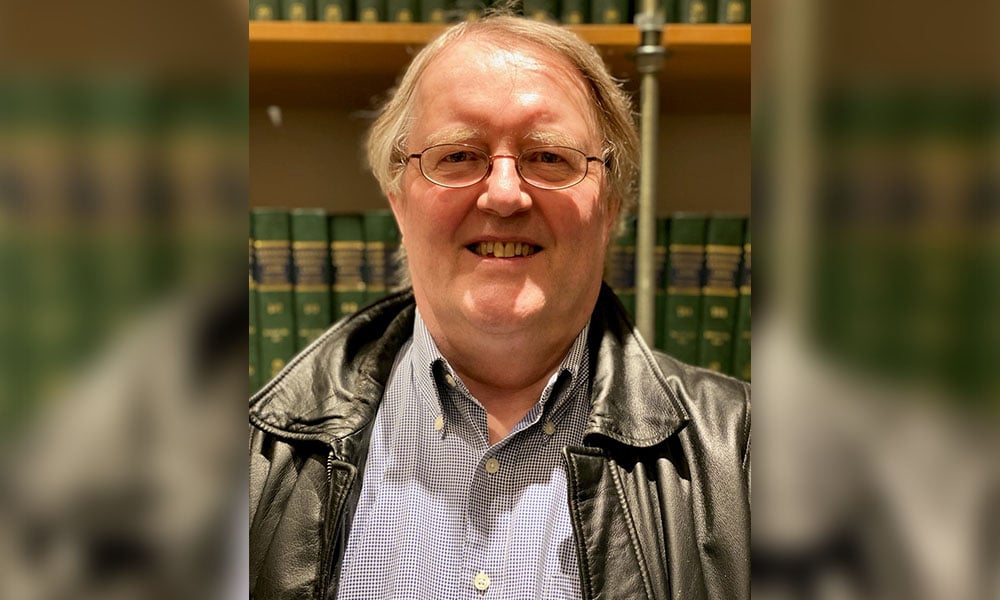
A medical opinion is only as good as the facts on which it is based, says lawyer

The Court of Appeal has set aside the convictions of two parents, found guilty of unlawful-act manslaughter in the sudden death of their 2-year old daughter. The Crown’s case – that the couple had not provided a sufficient diet – was based on a doctor’s report that showed the child had died as a result of protein and vitamin deficiency. At trial, the defendants did not submit evidence from a medical expert to challenge the report.
“I think the message to any lawyer would be, if you're doing one of these complex medical legal cases, always understand that the expert’s opinion is only as good as the facts on which it is based,” says Jack Gemmell, who acted for the parents in their appeal.
In R. v. Hosannah, 2020 ONCA 617, Court of Appeal Justices Lois Roberts David Watt and Janet Simmons quashed the 2015 ruling of Superior Court Justice John Sproat and ordered a new trial.
In Feb. 2011, Matinah Hosannah suddenly stopped breathing. Her parents called 911, but she died later that day at a Brampton hospital.
Maria and Sean Hosannah were charged with manslaughter for failing to provide the necessities of life and were tried together. The Crown alleged Matinah lacked adequate food and a balanced diet of protein and vitamins, and that the parents had neglected to follow up on a doctor’s referral to a paediatrician 11 months before she died.
The allegation that the Hosannahs had not given their daughter sufficient protein and vitamins was based on a post-mortem examination by forensic pathologist Dr. Michael Pollanen, who testified at trial that Matinah had died from a combination of malnutrition and asthma. Protein and vitamin deficiencies had caused a failure of blood circulation, starving the brain of oxygen, which had led to an asthma attack, he said. A paediatric nutritionist, Dr. Stanley Zlotkin, gave evidence the deficiencies were caused by a “longstanding” unbalanced diet, said the decision.
One problem in Pollanen’s report was it relied on a blood sample taken while doctors were trying to resuscitate Matinah and which had found a low level of the blood-protein albumin, says Gemmell. But at that time, Matinah had been shot with more than half-a-litre of saline to revive her, which Gemmell argued diluted the blood and could account for the albumin level, he says.
“This is an example of how you can look at an expert's opinion and look at the underlying facts and really ask the question, how reliable are those facts upon which that opinion is based,” he says.
On appeal, two more doctors entered the fray.
Dr. Michael Shkrum, a forensic pathologist, disagreed with Pollanen about the cause of death. According to Shkrum, the child died of heart failure caused by megaloblastic anemia and Vitamin D deficiency. Shkrum found no signs of asthma or that she died of an asthma attack in the autopsy. Shkrum also found “no compelling evidence” the child suffered from protein malnutrition, said the decision.
Pollanen responded to Shkrum’s report and having changed his view on the evidence, agreed that the child did not have an asthma attack at the time of death. But Pollanen rejected that heart failure was the cause of death.
Dr. Miller, an expert in paediatric bone disorders and genetics, told the court Pollanen had attributed to protein malnutrition factors that are also associated with severe vitamin D deficiency. Pollanen had underestimated the potential seriousness of vitamin D deficiency, said Miller.
The Hosannah’s sought to introduce the fresh evidence from Shkrum and Miller under s. 683(1)(d) of the Criminal Code. Fresh evidence can be entered on appeal if it is the interest of justice, including having the accused’s guilt adjudicated with all available evidence, while preserving the integrity of the criminal justice process. That integrity involves the trial being the opportunity to advance the case and the appeal the opportunity to for challenge the correctness of what happened at trial. The Court said three principles inform their exercise of the authority to receive new evidence: admissibility, cogency and due diligence.
The evidence passed admissibility and cogency. While the judge commented that there was a lack of due diligence no the part of the Hosannahs’ defence in not obtaining the evidence at trial, it’s complexity and relevance to the crux of the case meant due diligence was “no ground to reject this evidence,” said the decision.
“When you're defending one of these cases, if the medical opinion – as in this case – forms the central part of the Crown's case, you should retain an expert to at least review it,” says Gemmell.